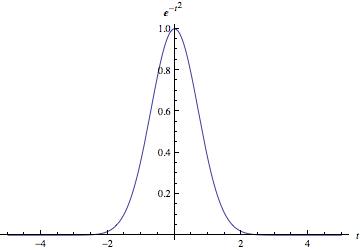|
Doob's Optional Stopping Theorem
In probability theory, the optional stopping theorem (or sometimes Doob's optional sampling theorem, for American probabilist Joseph L. Doob, Joseph Doob) says that, under certain conditions, the expected value of a martingale (probability theory), martingale at a stopping time is equal to its initial expected value. Since martingales can be used to model the wealth of a gambler participating in a fair game, the optional stopping theorem says that, on average, nothing can be gained by stopping play based on the information obtainable so far (i.e., without looking into the future). Certain conditions are necessary for this result to hold true. In particular, the theorem applies to Martingale (betting system), doubling strategies. The optional stopping theorem is an important tool of mathematical finance in the context of the fundamental theorem of asset pricing. Statement A discrete-time version of the theorem is given below, with denoting the set of natural integers, including ... [...More Info...] [...Related Items...] OR: [Wikipedia] [Google] [Baidu] |
Probability Theory
Probability theory or probability calculus is the branch of mathematics concerned with probability. Although there are several different probability interpretations, probability theory treats the concept in a rigorous mathematical manner by expressing it through a set of axioms of probability, axioms. Typically these axioms formalise probability in terms of a probability space, which assigns a measure (mathematics), measure taking values between 0 and 1, termed the probability measure, to a set of outcomes called the sample space. Any specified subset of the sample space is called an event (probability theory), event. Central subjects in probability theory include discrete and continuous random variables, probability distributions, and stochastic processes (which provide mathematical abstractions of determinism, non-deterministic or uncertain processes or measured Quantity, quantities that may either be single occurrences or evolve over time in a random fashion). Although it is no ... [...More Info...] [...Related Items...] OR: [Wikipedia] [Google] [Baidu] |
Supermartingale
In probability theory, a martingale is a stochastic process in which the expected value of the next observation, given all prior observations, is equal to the most recent value. In other words, the conditional expectation of the next value, given the past, is equal to the present value. Martingales are used to model fair games, where future expected winnings are equal to the current amount regardless of past outcomes. History Originally, '' martingale'' referred to a class of betting strategies that was popular in 18th-century France. The simplest of these strategies was designed for a game in which the gambler wins their stake if a coin comes up heads and loses it if the coin comes up tails. The strategy had the gambler double their bet after every loss so that the first win would recover all previous losses plus win a profit equal to the original stake. As the gambler's wealth and available time jointly approach infinity, their probability of eventually flipping heads approa ... [...More Info...] [...Related Items...] OR: [Wikipedia] [Google] [Baidu] |
Theorems In Statistics
In mathematics and formal logic, a theorem is a statement that has been proven, or can be proven. The ''proof'' of a theorem is a logical argument that uses the inference rules of a deductive system to establish that the theorem is a logical consequence of the axioms and previously proved theorems. In mainstream mathematics, the axioms and the inference rules are commonly left implicit, and, in this case, they are almost always those of Zermelo–Fraenkel set theory with the axiom of choice (ZFC), or of a less powerful theory, such as Peano arithmetic. Generally, an assertion that is explicitly called a theorem is a proved result that is not an immediate consequence of other known theorems. Moreover, many authors qualify as ''theorems'' only the most important results, and use the terms ''lemma'', ''proposition'' and ''corollary'' for less important theorems. In mathematical logic, the concepts of theorems and proofs have been formalized in order to allow mathematical reasonin ... [...More Info...] [...Related Items...] OR: [Wikipedia] [Google] [Baidu] |
Theorems In Probability Theory
In mathematics and formal logic, a theorem is a statement that has been proven, or can be proven. The ''proof'' of a theorem is a logical argument that uses the inference rules of a deductive system to establish that the theorem is a logical consequence of the axioms and previously proved theorems. In mainstream mathematics, the axioms and the inference rules are commonly left implicit, and, in this case, they are almost always those of Zermelo–Fraenkel set theory with the axiom of choice (ZFC), or of a less powerful theory, such as Peano arithmetic. Generally, an assertion that is explicitly called a theorem is a proved result that is not an immediate consequence of other known theorems. Moreover, many authors qualify as ''theorems'' only the most important results, and use the terms ''lemma'', ''proposition'' and ''corollary'' for less important theorems. In mathematical logic, the concepts of theorems and proofs have been formalized in order to allow mathematical reason ... [...More Info...] [...Related Items...] OR: [Wikipedia] [Google] [Baidu] |
Dominated Convergence Theorem
In measure theory, Lebesgue's dominated convergence theorem gives a mild sufficient condition under which limits and integrals of a sequence of functions can be interchanged. More technically it says that if a sequence of functions is bounded in absolute value by an integrable function and is almost everywhere pointwise convergent to a function then the sequence converges in L_1 to its pointwise limit, and in particular the integral of the limit is the limit of the integrals. Its power and utility are two of the primary theoretical advantages of Lebesgue integration over Riemann integration. In addition to its frequent appearance in mathematical analysis and partial differential equations, it is widely used in probability theory, since it gives a sufficient condition for the convergence of expected values of random variables. Statement Lebesgue's dominated convergence theorem. Let (f_n) be a sequence of complex-valued measurable functions on a measure space . Suppose that t ... [...More Info...] [...Related Items...] OR: [Wikipedia] [Google] [Baidu] |
Expected Value
In probability theory, the expected value (also called expectation, expectancy, expectation operator, mathematical expectation, mean, expectation value, or first Moment (mathematics), moment) is a generalization of the weighted average. Informally, the expected value is the arithmetic mean, mean of the possible values a random variable can take, weighted by the probability of those outcomes. Since it is obtained through arithmetic, the expected value sometimes may not even be included in the sample data set; it is not the value you would expect to get in reality. The expected value of a random variable with a finite number of outcomes is a weighted average of all possible outcomes. In the case of a continuum of possible outcomes, the expectation is defined by Integral, integration. In the axiomatic foundation for probability provided by measure theory, the expectation is given by Lebesgue integration. The expected value of a random variable is often denoted by , , or , with a ... [...More Info...] [...Related Items...] OR: [Wikipedia] [Google] [Baidu] |
Conditional Expectation
In probability theory, the conditional expectation, conditional expected value, or conditional mean of a random variable is its expected value evaluated with respect to the conditional probability distribution. If the random variable can take on only a finite number of values, the "conditions" are that the variable can only take on a subset of those values. More formally, in the case when the random variable is defined over a discrete probability space, the "conditions" are a partition of a set, partition of this probability space. Depending on the context, the conditional expectation can be either a random variable or a function. The random variable is denoted E(X\mid Y) analogously to conditional probability. The function form is either denoted E(X\mid Y=y) or a separate function symbol such as f(y) is introduced with the meaning E(X\mid Y) = f(Y). Examples Example 1: Dice rolling Consider the roll of a fair die and let ''A'' = 1 if the number is even (i.e., 2, 4, or 6) and ... [...More Info...] [...Related Items...] OR: [Wikipedia] [Google] [Baidu] |
Monotone Convergence Theorem
In the mathematical field of real analysis, the monotone convergence theorem is any of a number of related theorems proving the good convergence behaviour of monotonic sequences, i.e. sequences that are non- increasing, or non- decreasing. In its simplest form, it says that a non-decreasing bounded-above sequence of real numbers a_1 \le a_2 \le a_3 \le ...\le K converges to its smallest upper bound, its supremum. Likewise, a non-increasing bounded-below sequence converges to its largest lower bound, its infimum. In particular, infinite sums of non-negative numbers converge to the supremum of the partial sums if and only if the partial sums are bounded. For sums of non-negative increasing sequences 0 \le a_ \le a_ \le \cdots , it says that taking the sum and the supremum can be interchanged. In more advanced mathematics the monotone convergence theorem usually refers to a fundamental result in measure theory due to Lebesgue and Beppo Levi that says that for sequences of non ... [...More Info...] [...Related Items...] OR: [Wikipedia] [Google] [Baidu] |
Martingale Convergence Theorem
In mathematicsspecifically, in the theory of stochastic processesDoob's martingale convergence theorems are a collection of results on the limits of supermartingales, named after the American mathematician Joseph L. Doob. Informally, the martingale convergence theorem typically refers to the result that any supermartingale satisfying a certain boundedness condition must converge. One may think of supermartingales as the random variable analogues of non-increasing sequences; from this perspective, the martingale convergence theorem is a random variable analogue of the monotone convergence theorem, which states that any bounded monotone sequence converges. There are symmetric results for submartingales, which are analogous to non-decreasing sequences. Statement for discrete-time martingales A common formulation of the martingale convergence theorem for discrete-time martingales is the following. Let X_1, X_2, X_3, \dots be a supermartingale. Suppose that the supermartingale is bo ... [...More Info...] [...Related Items...] OR: [Wikipedia] [Google] [Baidu] |
Stopped Process
In mathematics, a stopped process is a stochastic process that is forced to assume the same value after a prescribed (possibly random) time. Definition Let * (\Omega, \mathcal, \mathbb) be a probability space; * (\mathbb, \mathcal) be a measurable space; * X : stopping time with respect to some filtration \ of \mathcal. Then the stopped process X^ is defined for t \geq 0 and \omega \in \Omega by :X_^ (\omega) := X_ (\omega). Examples Gambling Consider a Gambling">gambler Gambling (also known as betting or gaming) is the wagering of something of value ("the stakes") on a random event with the intent of winning something else of value, where instances of strategy are discounted. Gambling thus requires three ele ... playing roulette. ''X''''t'' denotes the gambler's total holdings in the casino at time ''t'' ≥ 0, which may or may not be allowed to be negative, depending on whether or not the casino offers credit. Let ''Y''''t'' denote what the gambler's holdings would b ... [...More Info...] [...Related Items...] OR: [Wikipedia] [Google] [Baidu] |
Markov Chain
In probability theory and statistics, a Markov chain or Markov process is a stochastic process describing a sequence of possible events in which the probability of each event depends only on the state attained in the previous event. Informally, this may be thought of as, "What happens next depends only on the state of affairs ''now''." A countably infinite sequence, in which the chain moves state at discrete time steps, gives a discrete-time Markov chain (DTMC). A continuous-time process is called a continuous-time Markov chain (CTMC). Markov processes are named in honor of the Russian mathematician Andrey Markov. Markov chains have many applications as statistical models of real-world processes. They provide the basis for general stochastic simulation methods known as Markov chain Monte Carlo, which are used for simulating sampling from complex probability distributions, and have found application in areas including Bayesian statistics, biology, chemistry, economics, fin ... [...More Info...] [...Related Items...] OR: [Wikipedia] [Google] [Baidu] |
Random Walk
In mathematics, a random walk, sometimes known as a drunkard's walk, is a stochastic process that describes a path that consists of a succession of random steps on some Space (mathematics), mathematical space. An elementary example of a random walk is the random walk on the integer number line \mathbb Z which starts at 0, and at each step moves +1 or −1 with equal probability. Other examples include the path traced by a molecule as it travels in a liquid or a gas (see Brownian motion), the search path of a foraging animal, or the price of a fluctuating random walk hypothesis, stock and the financial status of a gambler. Random walks have applications to engineering and many scientific fields including ecology, psychology, computer science, physics, chemistry, biology, economics, and sociology. The term ''random walk'' was first introduced by Karl Pearson in 1905. Realizations of random walks can be obtained by Monte Carlo Simulation, Monte Carlo simulation. Lattice random ... [...More Info...] [...Related Items...] OR: [Wikipedia] [Google] [Baidu] |


